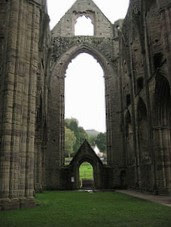 |
| Jonkers' Street Melaka, Hokkien Huay Kwan |
"And so, dear brothers and sisters, we can boldly enter heaven's Most Holy Place because of the blood of Jesus. By His death, Jesus opened a new and life-giving way." Hebrews 10;19-20a (NLT)
Door posts in different parts of the world are ornately decorated according to the different cultures and traditions. The most striking ones are found in Chinese houses. One example is this elaborately carved and painted door which fronts the Hokkien Huay Kwan Association along Jonkers’ Street, Malacca.
The two large warrior figures, Qin and Yuchi are known as 'door gods'. Door gods are supposed to keep evil spirits from entering the premises. This custom originated during the Tang Dynasty (618- 907 AD).
Two Tang dynasty generals, Qin Shubao and Yuchi Jingde were ordered by the emperor to guard the door of his bedroom chamber. Apparently, a ghost was harassing the emperor, causing him to have sleepless nights. With Qin and Yuchi on guard, the emperor had a blissful sleep. The next day, the emperor, not wanting to trouble his two generals, ordered their portraits to be hung on either side of the door. Qin Shubao, who is most often seen carrying swords, has very pale skin (often depicted as red), while Yuchi Jingde has much darker skin and wields one or several batons. These door gods, Qin and Yuchi are meant to ward off unwelcomed visitors.
Two Tang dynasty generals, Qin Shubao and Yuchi Jingde were ordered by the emperor to guard the door of his bedroom chamber. Apparently, a ghost was harassing the emperor, causing him to have sleepless nights. With Qin and Yuchi on guard, the emperor had a blissful sleep. The next day, the emperor, not wanting to trouble his two generals, ordered their portraits to be hung on either side of the door. Qin Shubao, who is most often seen carrying swords, has very pale skin (often depicted as red), while Yuchi Jingde has much darker skin and wields one or several batons. These door gods, Qin and Yuchi are meant to ward off unwelcomed visitors.
Rev Soh Guan Kheng writing an article for Lent (Ref 1) pointed out that the design of the Jewish Tabernacle was not so welcoming either, 'The two sections, called the Holy Place and the Most Holy Place, and the curtains that separate each section, were places of highly restricted access—only the priests were allowed into the Holy Place, and not without a prescribed liturgy of sacrifice for sin. Only the High Priest was allowed into the Most Holy Place and only once a year, with the prescribed blood sacrifice for sin. No one else was allowed into these Holy Places.'
The design implied the inaccessibility of God. Rev Soh posited, "The message was clear—God is holy, and sinful humanity had no access to Him except by His grace and on His terms." He asked, "Whenever we gather for worship, do we “barge” into God’s presence unprepared—in a hurry, flustered by frustrations and worries, too casually dressed, or with an attitude that says: “I have a right to be here”, or “I’m doing my spiritual duty for the week” or even, “what am I doing here”? Are we ever struck by the awe and wonder of God calling us into His presence?
It is a Christian's privilege to be able to enter into God's presence. The sacrifice of Jesus on the cross and cleansing of our sins, for those who believed, ushers us into God's Holy Presence. Christ has done for us what the Tabernacle and the ancient rituals could not provide, the ability to worship in God's presence, unfettered and unencumbered.
I Give My Life To Thee, My Hands I Raise
And As I Worship Thee, I Feel You Close To Me
Lord Make My Eyes To See Thee Face To Face
Within Thy Presence Lord, I Bow My Heart In Praise
I Give My Song To Thee, The Song You Gave
For On The Cross For Me, You Poured Out All So Free
And I Now Worship Thee, My Lord And King
The New Testament writer, Jude declared,
'To Him who is able to keep you from stumbling and to present you before His glorious presence without fault and with great joy - to the only God our Saviour be glory, majesty, power and authority, through Jesus Christ our Lord, before all ages, now and forevermore! Amen.' Jude 1:24-25
Updated 1st Published 10 April 2022
Ref 1: Rev Soh Guan Kheng Access in Christ into the Holy Places in Up From The Ashes Hope Will Arise - Daily Devotions For Lent 2022 Sowers Publication



